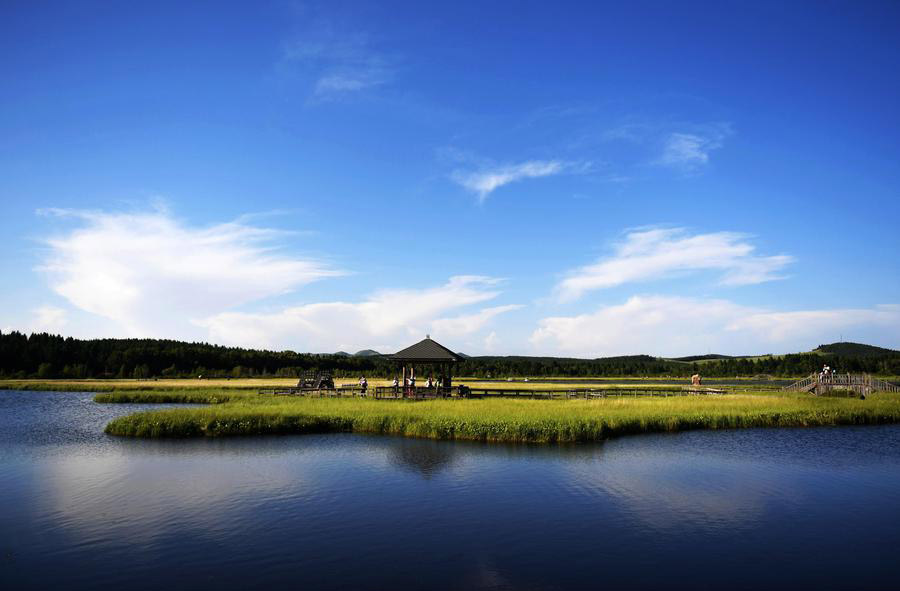Lucid waters and lush mountains are invaluable assets

A good ecological environment is the fairest public product, and the most accessible welfare for the people.
— President Xi Jinping addressed during his inspection tour in Hainan in April 2013
 |
| Photo taken on July 11, 2017 shows Saihanba National Forest Park, China's largest man-made woodland, in Weichang Manchu and Mongolian autonomous county in Chengde, Hebei province.[Photo/Xinhua] |
The genesis
The assertion was initiated in 2005 when President Xi was the Party chief of Zhejiang province. It has been mentioned by Xi many times both inside and outside China to attach importance to environment protection and green development.
The implementation
This philosophy for green development proposed by Chinese President Xi Jinping is changing the country.
The river chief system is among the major innovations in promoting green development by the Communist Party of China (CPC) Central Committee with Xi Jinping as the core, since the 18th CPC National Congress in 2012.
The report delivered at the 18th CPC National Congress included ecological development as a major task in the country's overall plan and proposed building a "beautiful China" as a grand goal for ecological progress.
Eco-civilization was also included in the CPC Constitution as a principle for development during the meeting. It was the first time in the world a ruling party had highlighted green development in its guidelines.
China's efforts to promote green development have earned global recognition. The United Nations Environment Programme (UNEP) decided to promote China's philosophy of ecological progress in February 2013 and released a report on China's strategies and practices in the field two years later.
Green development is not an empty idea in China. The central authorities have introduced enforcement systems to ensure local governments "walk the talk."
China introduced action plans to fight air, water and soil pollution and rolled out its harshest-ever environmental protection law. The country also decided to draw red lines declaring certain regions under mandatory and rigorous protection.
Local government efforts to promote ecological progress will be reviewed annually, then again every five years, and be used as a criterion for the promotion of officials.
A national campaign to review local governments' environmental protection work started in late 2015 from Hebei Province and has covered 23 provincial regions. Over 6,000 officials were held accountable for negligence or malpractice in 2016.
The efforts have paid off. The average annual density of fine air particulate matter, or PM 2.5, which is often used as a gauge for air pollution, dropped by 33 percent in 2016 in the Beijing-Hebei-Tianjin region compared with 2013.
From new energy vehicles to bike-sharing, low-carbon lifestyles are becoming popular among Chinese people.
























